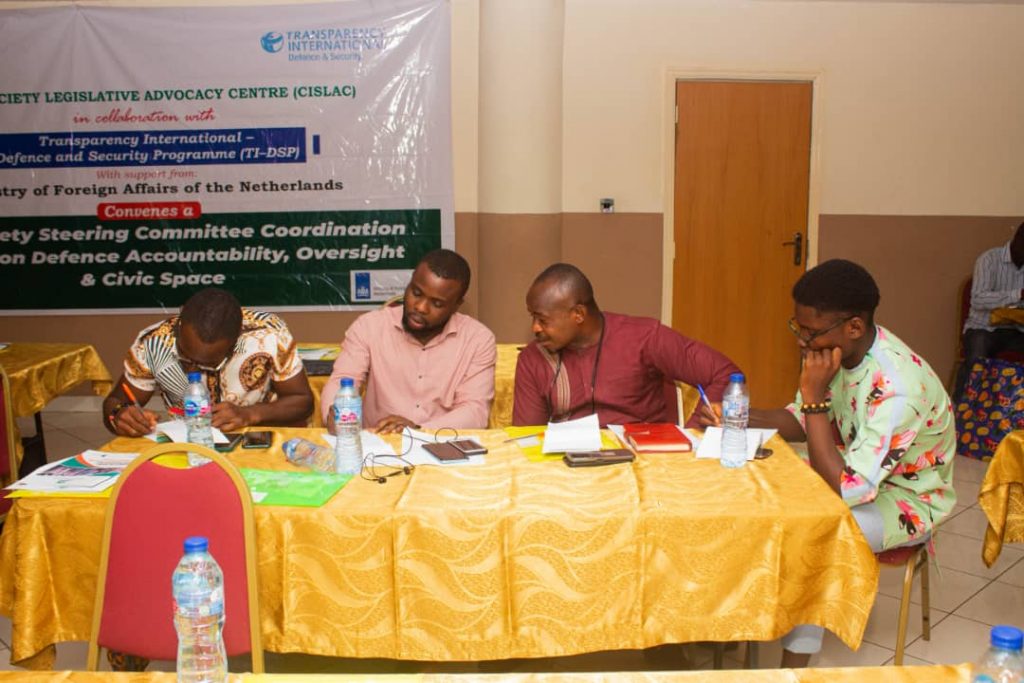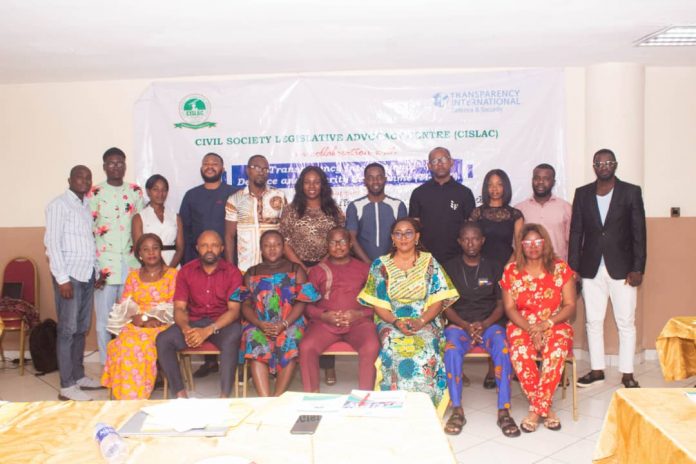A one-day civil society steering committee coordination meeting on defence accountability and civilian oversight has ended with a call to government to improve the well-being and welfare of security agencies in the Country.
The meeting organized by the Civil Society Legislative Advocacy Center (CISLAC)/ Transparency International in Nigeria (TI-Nigeria) in collaboration with Transparency International – Defence and Security Project, was held recently in Enugu.

They canvassed that the judicial system needs an overall cleansing, stressing that civil-military relations should be improved across all the states in the country.
Specifically, they said “military personnel should be trained on proactive strategies to address security challenges in Enugu”.
In an opening remarks, Ms. Bertha Ogbimi, the Programme Officer, delivered greetings on behalf of the Executive Director of CISLAC, Auwal Ibrahim Musa- Rafsanjani.
Ogbimi recalled that in 2010, a lot of money started going into the defence sector because of the increased rate of crimes, but security challenges kept increasing and it has continued to increase because nobody is asking questions.
Consequently, she said CISLAC decided to take the brave step and adopt the project in order to demand accountability and transparency from the Nigerian Defence Sector.
According to Ogbimi, Nigeria usually obtains very low scores in the Corruption Perception Index (CPI), saying this poses danger to the system and the day-to-day activities.
She asserted that when resources are not utilized judiciously, the Country and its people are exposed to a lot of threats.
In her words, “corruption in defence is dangerous, divisive and wasteful and we, as citizens have roles to play in ensuring that our nation is not referred to as a “Banana Republic”.
Ogbimi therefore moved on to discuss various activities and inputs that have been invested into the project up until this present times.
She explained a previous project, which was first of all implemented before the birth of this current project, where an advisory Committee (SANDS) was set up, adding that at that time, the government challenged their motive. “So CISLAC sought co-operation from an international body, which is when the Transparency International Military came into the picture”.
She stated that an action plan was developed and implemented in the airforce and efforts were also made to replicate same in the navy and the army.
She explained that the holistic plan was to develop a whistle blowing scheme.
Similarly, Mrs. Lovelyn Agbor-Gabriel, who is in charge of the Monitoring and Evaluation department of CISLAC, spoke on Advocacy Strategies and Commitments Towards Result Oriented State Based Advocacy.
According to the organisers, the meeting aimed to identify and assess the progress that has been made so far in promoting defence accountability and civilian oversight in the south-eastern region of Nigeria.
It also aimed to ascertain further steps to take and finally develop prayers in order identify participants’ desired outcome and hopes concerning the subject matter.
The workshop involved different sections, which included: The project overview, advocacy strategies and commitments targeted towards result oriented State-based advocacy and development of advocacy prayer for Defence nd Security institutions.
The participants represented different states from the South-east (Imo, Ebonyi, Anambra, Enugu, and Abia).













